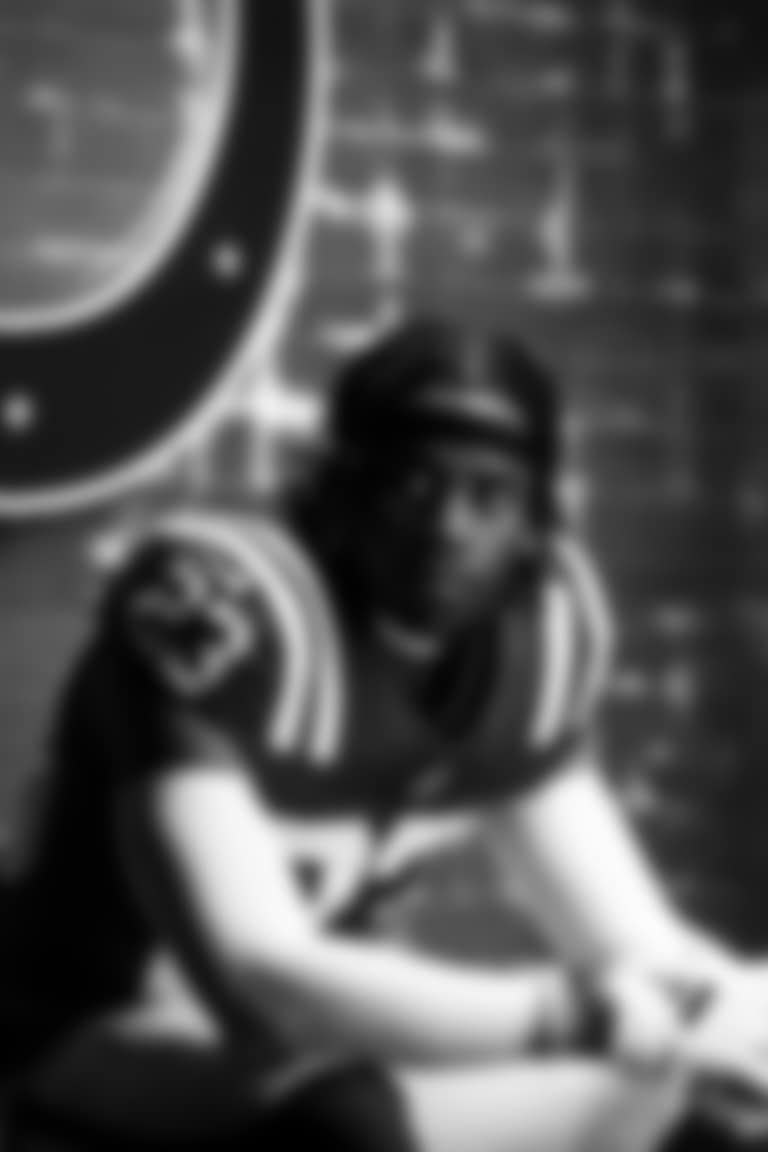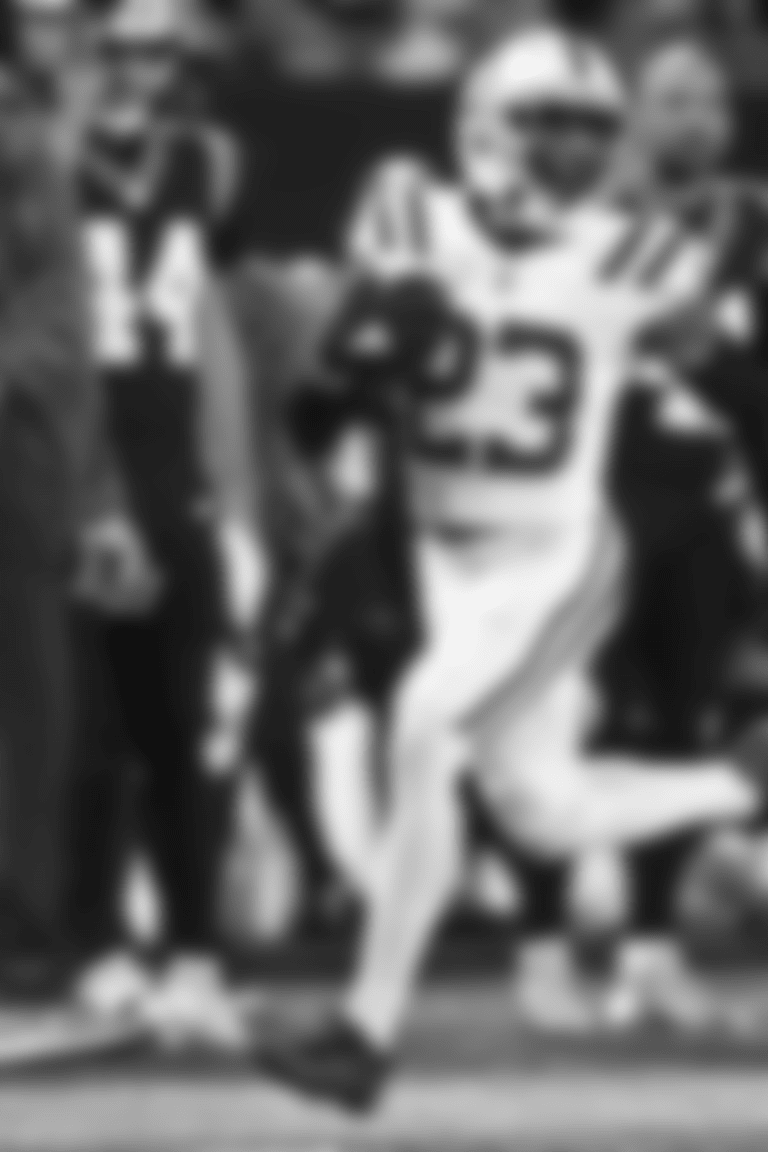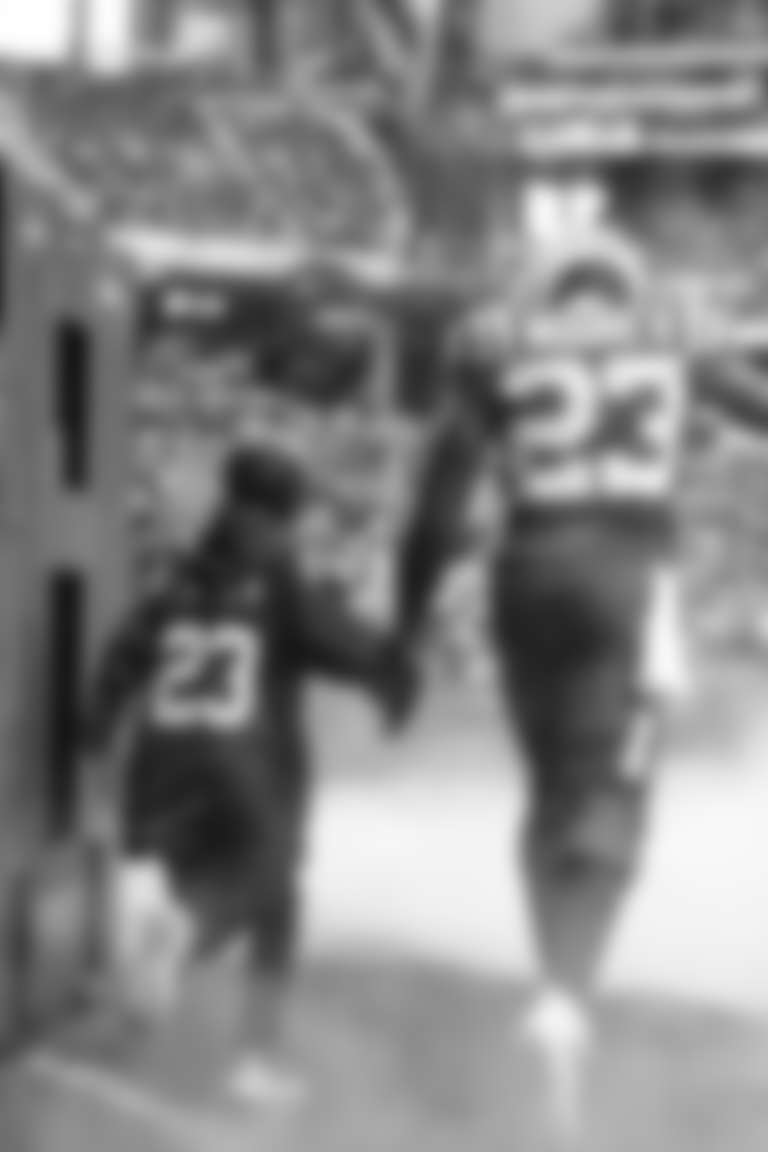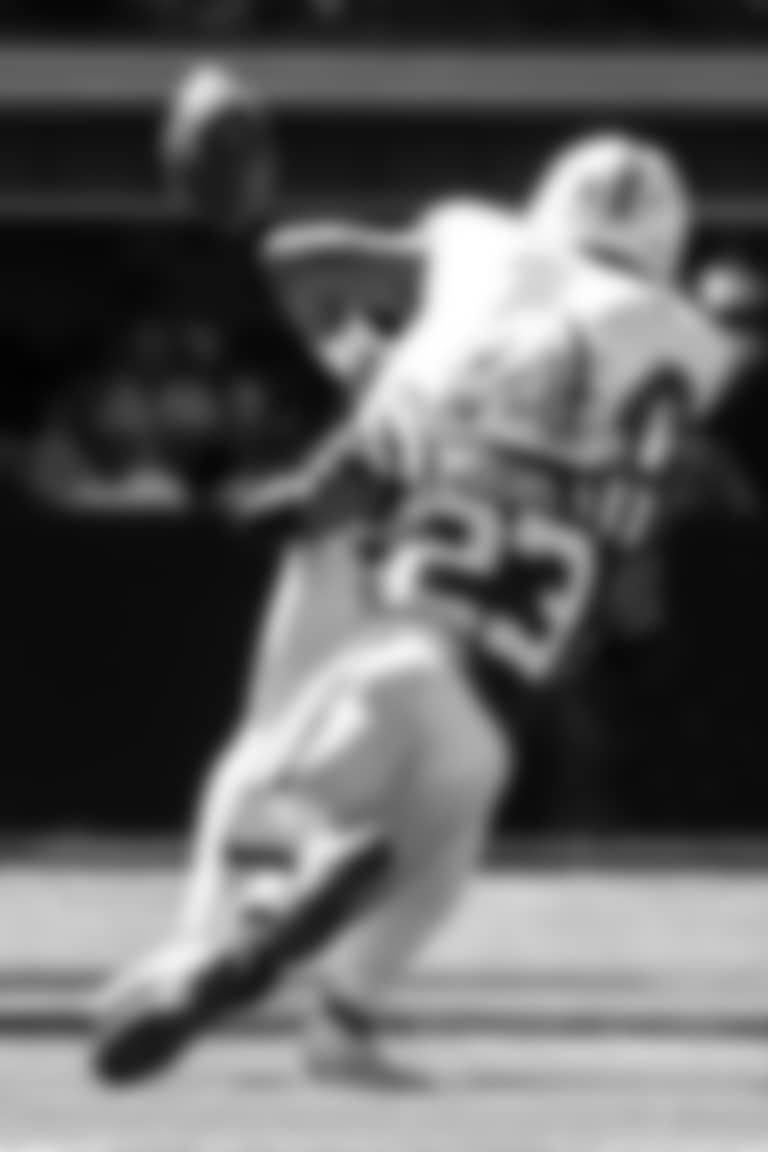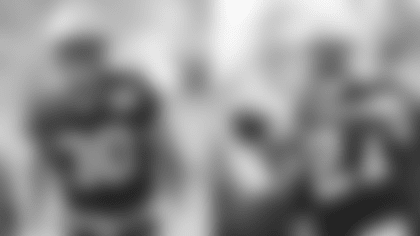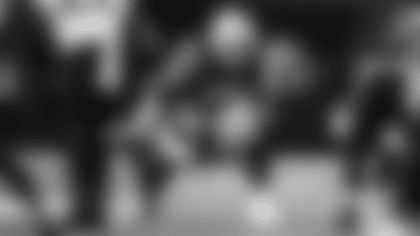Standing outside the visitors' concession stand at Martin Stadium in Valdosta, Ga., a 16-year-old Moore watches the Lowndes High School football team warm up. It's something the teenager often finds himself doing every Friday night, soaking everything in before he gets to work serving up hot dogs and hamburgers.
"Dang," he says to himself. "That's so cool."
The Vikings football team was a perennial powerhouse in the state of Georgia, with five state championship titles and consistent high-level talent every year. Head coach Randy McPherson turned the program around with his arrival in 2002, and by the time Moore was a junior in high school in 2011 the team was coming off four straight seasons with double-digit wins.
But as Moore stands there on the concourse watching his classmates, he never imagines himself playing alongside them. Not because he believes he can't, but because he doesn't want to.
Moore played Pop Warner football in middle school but decided not to play high school ball after realizing his size could hold him back (he was barely over five feet tall at the time); that, combined with the overwhelming physicality of the game, deterred Moore from ever imagining a future on the gridiron.
So, for the first three years of high school, Moore focused instead on other sports like basketball and track and field, excelling in each one and even making it to state championships for 110-meter hurdles his junior year.
During the spring of Moore's junior year, he was approached by fellow track and field teammate who was a cornerback on the football team. Moore's friend was not going to be able to play football come senior year and, knowing the team only had freshmen and sophomores behind him, started trying to convince Moore to give the sport a shot again.
"He was like, 'You play every other sport at the school, you might as well just try it out,'" Moore recalled.
It took a couple of weeks for Moore to come to a decision, but eventually he found Coach McPherson and told him he wanted to play football.
McPherson's answer was immediate: yes.
The football coach had known Moore since he was in middle school, and had been trying to get him to join the team for years. As a witness to Moore's growth as a basketball player over the previous three years – Moore was a lockdown defender despite being barely 5-foot-9 – McPherson was determined to get that kind of talent onto his football team.
"He was like glue on whoever he covered," McPherson explained. "You could just tell, he could float."
There was one problem, though: Moore didn't want to be a cornerback. He still wanted to be a wide receiver. So, on the first day of practice, McPherson let Moore start out doing receiver drills – but by the end of the day, Moore was with the cornerbacks.
"We put him in pads and on day one, nobody was catching passes on Kenny," McPherson recalled. "I mean, we didn't teach him nothing...you couldn't complete a pass on him. He was right next to the receiver, no matter what, from the first day."
McPherson knew immediately how special Moore could be. But for a kid who wasn't even sure he wanted to play the sport in the first place, it was easy for uncertainty to rise quickly to the forefront of Moore's mind when things didn't go the way he expected. And after someone suggested to Moore that he was just going to be used as a "practice dummy," the teenager made a snap decision.
The next morning, McPherson showed up at Moore's house as he had the day before to pick him up for the team's early morning workout; the two lived on the same side of town, and McPherson passed by Moore's neighborhood every day on the way to school. But Moore didn't answer the door. He was done with football.
"I'm not even thinking (McPherson) as picking me up every day," Moore said with a sheepish smile. "I was a 16-year-old, what do I know? I'm not thinking about others."
McPherson wasn't going to let him get away that easily, though. He hunted Moore down in the school hallways later that day and made it explicitly clear: I want you on my team.
"He was doing too good from the first day out there to quit," McPherson said. "I never believed he was going to quit. I was going to go to the house, I was going to do everything I could do to get him not to quit, right? It was not going to happen."
McPherson's support and encouragement was all Moore needed. He was back in.
"I think he just wanted to finish what he started," Moore said. "He was just a good light in my corner, just making sure that like, look, you can play for us. You're not just a practice dummy or whatever it is. We gonna have some fun. We want you to play for us. So having that type of leadership and advice from him, it gave me some comfort and confidence."
From then on, Moore knew he could count on McPherson's support – not just as a coach, but as a friend. McPherson continued to pick Moore up every single day for morning workouts, proving how much he valued Moore's presence on his team.
"He was like a grandfather to me," Moore remembered with a smile. "He had that cup of coffee every day, and he was of few words, deep voice...He was the parent without your parents being around. He kept a lot of people straight."



